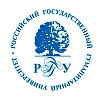Oleg Ignatkin. Evaluation of the Millennium Goals: Hard Road Ahead
In
Log in if you are already registered
Millennium goals, proclaimed by the UN were and remain an intrinsic feature of a mix of grandiloquent speechifying and idealistic intentions by the leaders of the “free world” aimed at eradicating poverty, fighting health problems, improving education, further liberating female population across the world from the so-called “two jobs”, still pose an insurmountable challenge and far-reaching “utopian” goal. The underlying basis for the aforementioned concern is multifold.
Obstacles to overcome poverty.
Growing inequality persist as an “inherent vice” for multitudinous authoritarian regimes in Africa, Central Asia and Middle Eastern states, with Gini coefficient varying 0.6-.0.7 for many of them and fragile political institutions being incapable of fulfilling its primary role. Paradoxically, inequality in the U.S. since 1970s has increased dramatically as well (works by J. Stiglitz, P. Krugman, J.Rawls) accentuated by monopolization and median income inequality resulting in risks of political and social unrest.
Why can’t we tackle poverty?
Three-fold answer is possible here. Primarily country’s so -called “Rawlsian basic structure” (named after prominent philosopher J.Rawls, who had presented it in his celebrated book on political philosophy “A Theory of Justice” (1971) may be not aimed to create conditions for equality. J. Rawls stated that the principle of individual liberty that included tenets of freedom unlimited by the freedoms of the others, principle of equality of opportunity and addressing the issue of helping the poorest group of society, all being called the principles of “maximin” aren’t suffice not only for the “small income countries” but also for the USA and Europe as well. Secondly, corruption and weak political institutions aggravate the failing state of poverty in these countries. And finally, speculative nature of global economy increases the gap between the rich and poor, to the levels not seen before.
Conclusion.
More sufficient G-20’s or pro-active World Bank’s patterned regulation might improve the situation. Other option might be attracting public opinion to the real mire state of global poverty for making possible the scope of private donation and smart-moneyed government contribution.
Oleg Ignatkin, Associate professor, PhD. Department of Foreign policy and area studies.




